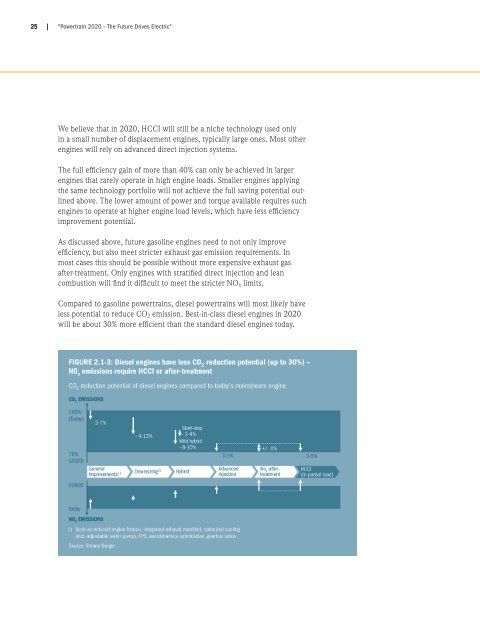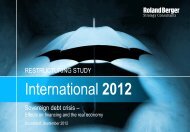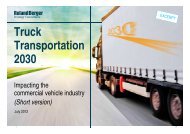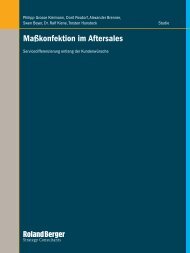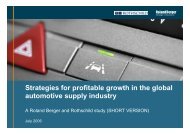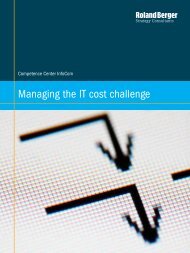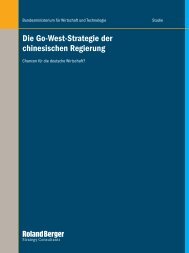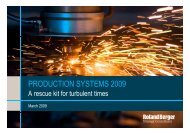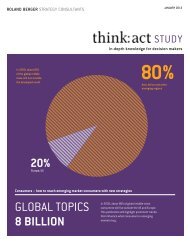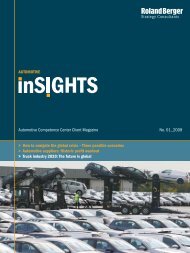Powertrain 2020 - The Future Drives Electric (PDF ... - Roland Berger
Powertrain 2020 - The Future Drives Electric (PDF ... - Roland Berger
Powertrain 2020 - The Future Drives Electric (PDF ... - Roland Berger
Create successful ePaper yourself
Turn your PDF publications into a flip-book with our unique Google optimized e-Paper software.
25 |<br />
"<strong>Powertrain</strong> <strong>2020</strong> – <strong>The</strong> <strong>Future</strong> <strong>Drives</strong> <strong>Electric</strong>"<br />
We believe that in <strong>2020</strong>, HCCI will still be a niche technology used only<br />
in a small number of displacement engines, typically large ones. Most other<br />
engines will rely on advanced direct injection systems.<br />
<strong>The</strong> full efficiency gain of more than 40% can only be achieved in larger<br />
engines that rarely operate in high engine loads. Smaller engines applying<br />
the same technology portfolio will not achieve the full saving potential outlined<br />
above. <strong>The</strong> lower amount of power and torque available requires such<br />
engines to operate at higher engine load levels, which have less efficiency<br />
improvement potential.<br />
As discussed above, future gasoline engines need to not only improve<br />
efficiency, but also meet stricter exhaust gas emission requirements. In<br />
most cases this should be possible without more expensive exhaust gas<br />
after-treatment. Only engines with stratified direct injection and lean<br />
combustion will find it difficult to meet the stricter NO x limits.<br />
Compared to gasoline powertrains, diesel powertrains will most likely have<br />
less potential to reduce CO 2 emission. Best-in-class diesel engines in <strong>2020</strong><br />
will be about 30% more efficient than the standard diesel engines today.


